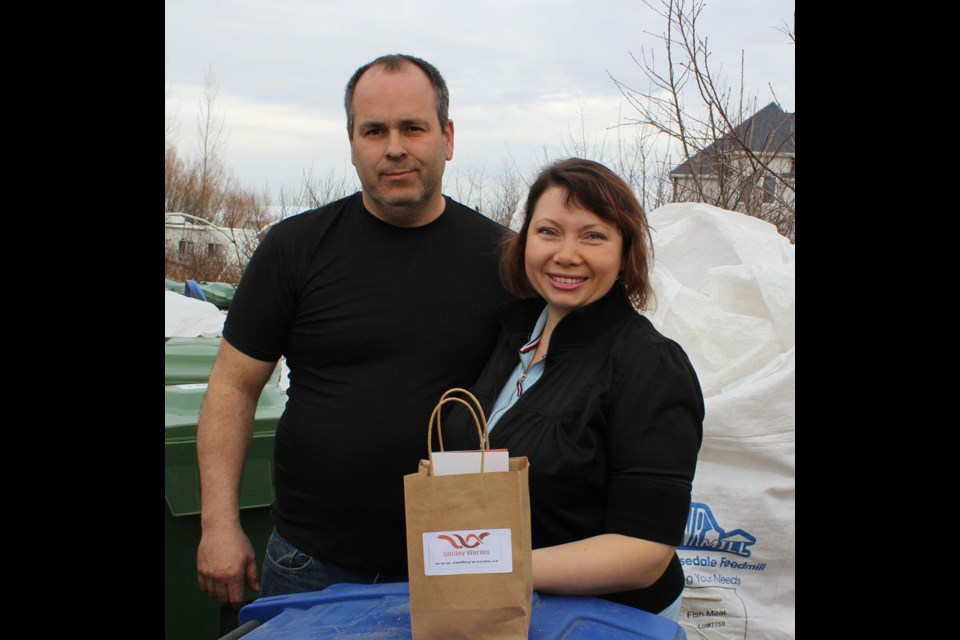Bags of soil are appearing at hardware stores and green houses across the country, and people will be filling pots from community soil piles, but there’s a secret to growing lush plants and that is worm castings. Worm poop.
Worm farming with red wigglers is an environmental answer. A large-scale business can divert compostable materials from municipal landfills and turn it into worm castings, a natural source of plant nutrients.
Woodchips, card board and composted vegetable scraps all go into a processing machine.
“These are biodegradable bags,” says Martin Dupuis, owner of a worm farm near Brandon. “This is what I feed my worms.”
HOUSEHOLD FARMING
Initially, I purchased a small paper bag of worms from Winnipeg in 2019 from Winnipeg. Over the internet, I bought a worm “tower”. The 30-inch-high tower is just multiple layers of shallow boxes, each with an open grid floor to allow moisture to drain to a pan below. However, you can adapt a large plastic tub to get started. Be sure to drill air holes in the lid and provide shredded newspaper or coconut coir as bedding.
I kept the little factory right near my kitchen. No smell at all. The process worked great for a while and I did get some special dirt – about two cups worth – before the worms failed to thrive.
This spring, it was time to start over.
On March 20, I was searching for red wigglers for my little worm farm. I was smiling when I found Smiley Worms, a homebased business near the little community of Roseland (west of Brandon). Finally, a source of worms and their finished product, the castings.
I texted Dupuis at Smiley Worms and ordered a half-pound of red wigglers for curbside pick-up.
Arriving at Smiley’s the first thing you notice are several small Quonsets, big bags, piles of wood chips, solar energy panels and rows of fruit shrubs waiting to leaf out. “I’m willing to try stuff,” explained Dupuis.
It was about 2011 when Dupuis began studying worm farming. He attended conferences and went ahead in a small way. But it was in 2019 that it became a business. Since then, Smiley Worms acquired contracts to take the City of Brandon’s shredded wood chips.
Restaurants have also contracted for waste pick-up, which feeds the red wigglers and the larger European night crawlers. Smiley Worms big worms for fishing bate.
Dupuis’ operation goes as far as Portage to get raw material for the farm.
Collected from greenhouses, used potting soil full of last year’s plant debris and roots is processed here where itbecomes a new product.
“It’s Revitalized Soil. We take it, all the roots go through the machine. That vegetable compost (that we just got from Portage), we’ll mix it with,” says Elena.
While Martin is the hands-on worm farm expert, Elena, an educator (teaching English to immigrants) is the marketing manager. The farm is on the web smileyworms.ca/ and Facebook.
Worms thrive on vegetable scraps, paper, carboard, coffee ground, all in the right combination in a moist environment – indoors. Check out the information on Smiley Worms.




